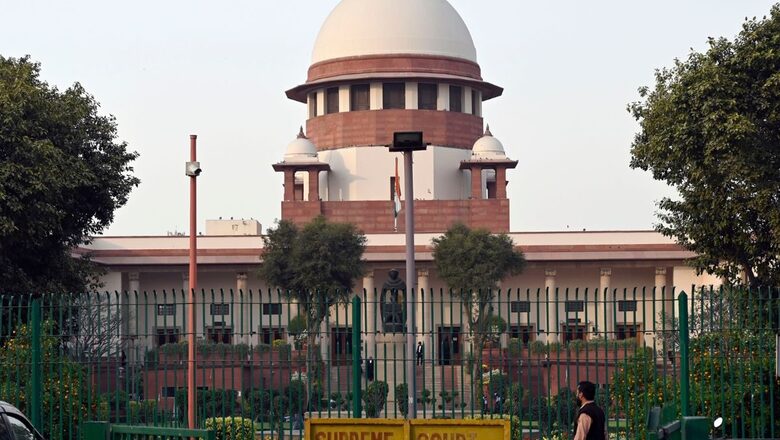
views
The Supreme Court will pronounce its verdict on a batch of petitions challenging the electoral bond scheme on Thursday. The verdict will be delivered by a 5-judge constitution bench, including the Chief Justice of India DY Chandrachud.
According to a LiveLaw report, the bench consisting of Justices Sanjiv Khanna, BR Gavai, JB Pardiwala and Manoj Misra had reserved the judgment in the matter on November 2 after hearing the matter for three days.
The petitioners in the case are the Association for Democratic Reforms (ADR), the Communist Party of India (Marxist), and Dr Jaya Thakur, who challenged the amendments introduced by the Finance Act 2017 which paved the way for the electoral bonds scheme.
The petitioners argued that the anonymity in the electoral bonds affects the transparency of political funding and infringes on the voters’ right to information, which is sacrosanct in a democracy.
The Modi government, on the other hand, is defending the scheme calling it a method to ensure that ‘white’ money is used for political funding through proper banking channels.
The Government further argued that anonymity in these bonds was necessary to keep the identity of donors confidential so that they would not face any retribution from political parties.
WHAT ARE ELECTORAL BONDS?
An electoral bond are money instruments similar to a promissory note, that is payable to the bearer on demand and without interest. It is a process by which an Indian citizen or a corporate entity can fund a political party, which can encash them later.
The government implemented the electoral bonds in 2018. It was introduced by the Narendra Modi-led NDA government in Gazette Notification No. 20 dated January 2, 2018 in order to “cleanse the system of political funding in the country.”
Electoral bonds, introduced to make political party funding more transparent, allow a political donor to purchase bonds from authorised banks and can only be redeemed by parties through registered accounts within a specified time frame.
HOW CAN ELECTORAL BONDS BE PURCHASED?
It can be purchased by any Indian citizen or a company registered in India. Electoral bonds can be purchased at any State Bank of India branch in one of the cities listed by the government.
The bonds are interest-free and people and corporations interested in purchasing them must first complete prerequisites such as KYC (Know Your Customer) with the bank for authentication. It can be purchased in multiple denominations ranging from Rs 1,000 to Rs 1 crore.
The bond would not carry the name of the payee and have a life of only 15 days, during which it can be used for making donations to political parties meeting certain criteria. The electoral bonds can be encashed only through designated bank accounts by the parties.
Political parties registered under Section 29A of the Representation of the People Act, 1951 and which secured not less than one per cent of the votes polled in the last election to the Lok Sabha or a state legislative Assembly are only eligible to receive electoral bonds.




















Comments
0 comment